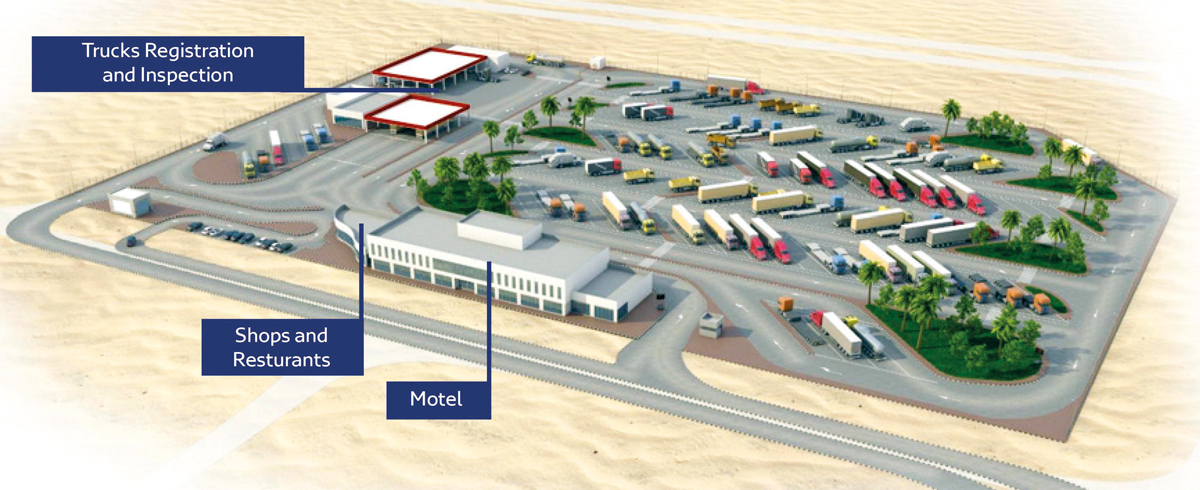Two new rest areas for truck drivers in Dubai soon
The two stations will have 100 parking slots for heavy trucks as well as restaurants, motels and leisure space

Dubai: Stopovers for truck drivers will be more enjoyable as Dubai plans to build dedicated rest areas for drivers of heavy vehicles.
Spread across five hectares each, the two stations will have 100 parking slots for heavy trucks as well as restaurants, motels and leisure space.
The two stations under construction will also have registration and testing facilities for heavy vehicles, allowing truck drivers to complete the annual formalities while relaxing in the station’s dormitories or restaurants.
To be located at Dubai Industrial City along Shaikh Mohammad Bin Zayed Road and Dubailand on Emirates Road, the Roads and Transport Authority (RTA) recently signed an agreement with Emirates Desert Group for the construction of the two stations. They will be built under the Public Private Partnership (PPP) model of Build, Operate and Transfer (BOT).
“Through constructing these facilities, RTA aims at minimising the practice of parking trucks on highways and in residential areas, besides meeting the growing demand for the service,” said Mattar Al Tayer, director-general and chairman of the Board of Executive Directors of RTA.
According to Al Tayer, trucks make around 145,000 trips per day in Dubai, transporting about three million tonnes of goods a day.
“The two stations will step up the traffic safety, reduce associated accidents, and improve the traffic movement during the prohibited timings of trucks movement. The project also demonstrates RTA’s keenness to engage the private sector in constructing infrastructure and service projects,” he added.
Al Tayer said that the project will generate an additional source of income for RTA by sharing proceeds with the investor and at the same time availing the investor a chance to diversify its investment projects portfolio.
“RTA gives paramount attention to land transport in view of its immense role in driving the economic development. It has commissioned comprehensive studies of trucks movement in Dubai involving field surveys, interviews and workshops. RTA has developed a schematic chart anticipating the traffic movement in future and examined the need for dry ports and cargo assembly centres,” he said.
Al Tayer said that studies also covered the existing prohibited truck movement policy, prohibited timing and routes, truck-dedicated roads, and organisational aspects relating to traffic management and goods movement in Dubai.
Sign up for the Daily Briefing
Get the latest news and updates straight to your inbox



